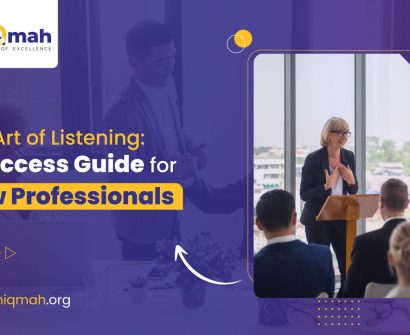
In a world where first impressions can make or break a career, creating a standout resume is a strategic advantage. According to a survey by Jobvite, 83% of recruiters are more likely to hire a candidate with a well-formatted resume. So, you must devote your valuable time and attention to details while creating a high-quality resume. If you struggle to create a high-quality resume and need help figuring out where to start, you have landed at the right place. This blog provides a list of dos and don’ts for creating a resume that leaves a lasting impression.
Do’s and Don’ts of Resume Writing
Creating a high-value resume that stands out is more than just listing your talents and abilities; it’s about presenting your professional story in a way that catches recruiters’ and hiring managers’ attention. In a job market where more than 80% of resumes get past the initial screening process, it’s crucial to be well-informed and prepared. Here are some dos and don’ts for effective resume writing that will equip you with the necessary knowledge and skills:
6 Do’s of Resume Writing
1. Research Thoroughly:
Do thorough research on the job market and industry/market trends, and determine your job search objective to tailor your resume for the specific position or industry. This will help you gain a competitive edge over other candidates by demonstrating company knowledge and relevant skills, thus making your resume appealing to employers.
2. Quantify your Skills:
Highlight your achievements and quantify your skills, results, and experiences with numbers. This will help you create an impact, provide evidence of your contributions and effectiveness in your previous jobs, and help differentiate your abilities and draw better comparisons. Example: managed a team of 6–7 people or increased quarterly sales by 25%.
3. Proofread your Resume:
Proofread your resume for typos, grammatical mistakes, and errors at least twice. According to research by CareerBuilder, 77% of employers will immediately screen out resumes with typos or bad grammar. Employers view such mistakes as a sign of carelessness and lack of interest, resulting in your resume being rejected.
4. Use a Professional Format:
Use a format that is simple to read, appears professional, and has a clean layout. Use clear titles for each section and keep the layout consistent throughout. Use bullet points to highlight important points.
5. Make Your Resume ATS-readable:
ATS, or applicant tracking systems, are commonly used by recruiters to search for resumes on various job boards. These systems scan for specific keywords related to skills, qualifications, and experience in the job description. Therefore, reviewing the job description carefully and incorporating relevant keywords throughout your resume is crucial. Also, avoid using images, graphics, and complex resume templates, as these can confuse the ATS and hinder your chances of being shortlisted.
6. Provide a URL for your LinkedIn profile:
According to Harvard Business Review research, 40% of recruiters say that they have hired a candidate based on their LinkedIn profile alone. Customizing your LinkedIn profile becomes crucial to complement your resume, and you should update it regularly to reflect your latest experiences and skills and ensure a cohesive presence.
5 Don’t’s of Resume Writing
1. Don’t Exaggerate or Falsify:
64.2% of people lie on resumes, and 81.4% of them have been caught at some point; most lies are uncovered before the job begins. Exaggerations and lies can be easily detected during background checks and interviews. It can cost you your job, credibility, or a potential opportunity, so it’s better not to exaggerate or falsify your achievements and qualifications.
2. Use Professional Email Addresses:
It’s important to ensure that the email address you use on your resume is professional and grammatically correct. Creating a new email address specifically for your job search can help you keep your job search organized and ensure you receive all the important information and updates. Remember, your email address is often the first point of contact with a potential employer, so it’s crucial to make a good first impression.
Example:
– firstname.secondname@domain.com. Example: James.smith@gmail.com
– firstname.initial@domain.com. Example: James.s@gmail.com
– firstname@domain.com. Example:James@gmail.com
3. Don’t Use Long Paragraphs:
Recruiters and hiring managers spend 6-8 seconds reviewing a resume. They usually skim through resumes and look for relevant keywords in the job description. Therefore, keeping your resume concise and to the point is crucial. Long paragraphs can be overwhelming and cause the reader to miss important information. Bullet points are a better way to highlight key points and improve readability.
4. Don’t Include Personal Information:
Avoid unnecessary information unrelated to the job, such as age, marital status, information about your parents, ethnicity, or religion. This could lead to unconscious decision-making bias and potentially give rise to privacy issues.
5. Don’t Mention Random and Unrelated Hobbies:
If you are a fresher or have limited experience, you can include hobbies on your resume to showcase your strengths. Ensure you include hobbies that you perform regularly and show some skill. Avoid writing anything that is not a transferable work-related skill.
Example:
– Avoid: listening to music.
– Mention: writing, reading, or blogging.
Creating an effective resume requires a clear understanding of the roles and responsibilities of the job, the job market, industry trends, and other statistics. A well-formatted, error-free, and tailored resume, including relevant keywords and quantifiable achievements, will help you stand out in today’s competitive job market. However, failure to follow these guidelines could result in your resume being overlooked. Follow these dos and don’ts to enhance your chances of landing an interview.
At HiQmah, we have developed a Corporate Readiness Course (CRC), which has a training module dedicated to writing effective resumes and tailoring them to your skills and expertise to create a high-quality resume that will help you stand out from the competition. In addition, the course offers a holistic approach to professional development that includes learning to articulate ideas clearly, adapt to industry changes, approach challenges with confidence, and much more.
Register Today To Prepare Yourself For Your Corporate Job!





